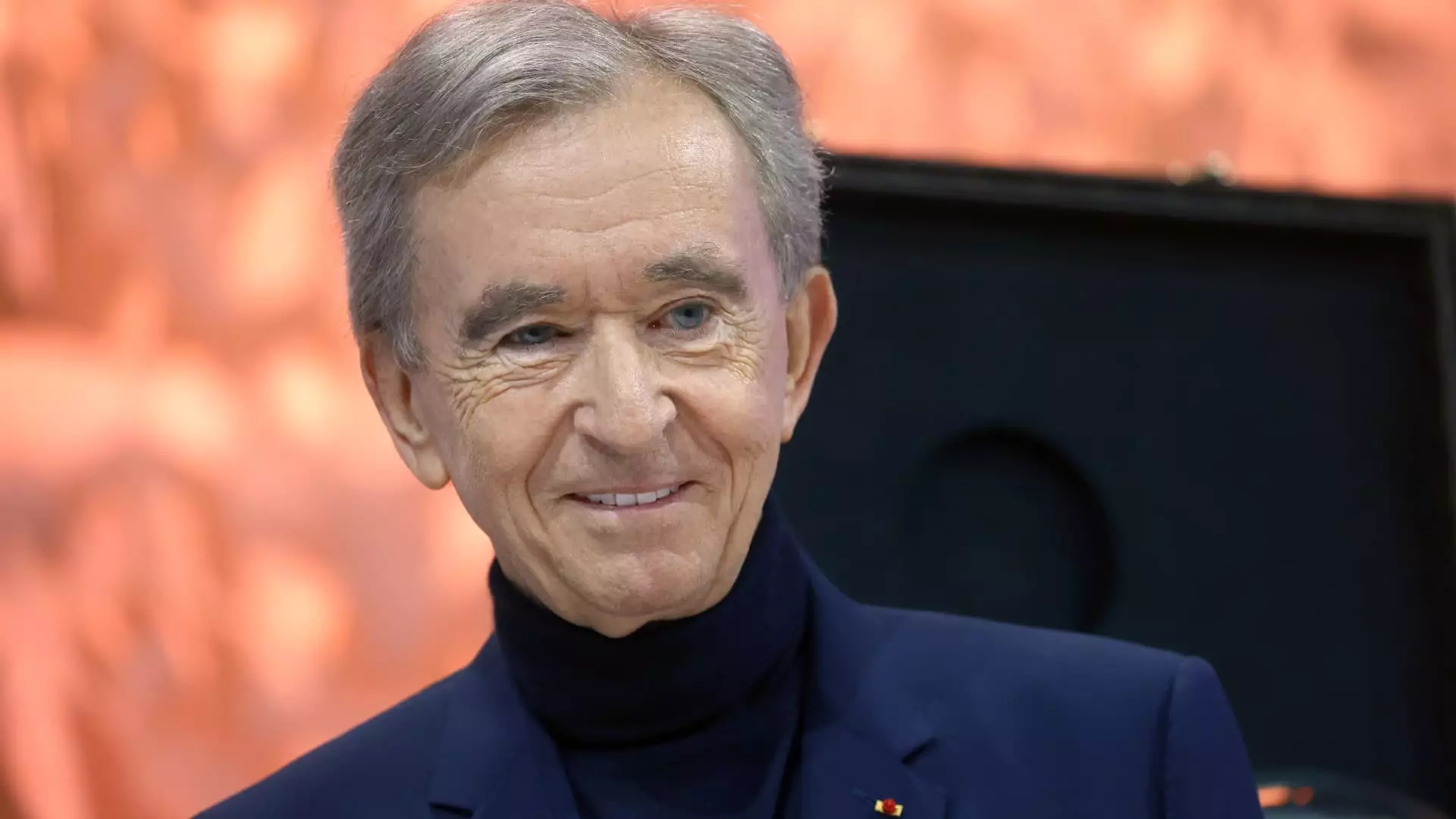The recent news of luxury brand LVMH becoming an official sponsor of the Olympic Games marks a significant shift in the traditional sponsorship landscape of the prestigious sporting event. With a substantial investment of $160 million, LVMH is set to showcase its empire of renowned brands like Louis Vuitton, Celine, and Tiffany throughout the 2024 Paris Olympic Games. This move not only highlights the company’s commitment to sports but also aims to represent the spirit of the country and the power of the brand on a global scale.
LVMH’s sponsorship deal with the Olympic Committee is a result of a year-long negotiation process, culminating in a groundbreaking agreement that includes various activations and collaborations during the Olympic and Paralympic Games. One of the standout features of this partnership is the involvement of LVMH-owned Chaumet, which has the prestigious honor of designing the medals for the games, making it the first jeweler in Olympic history to do so. Additionally, the medals will be housed in trunks created by Louis Vuitton, adding a touch of luxury to the prestigious awards ceremony.
According to LVMH Chairman and CEO Bernard Arnault, the decision to sponsor the Olympics was not solely about showcasing the brands but also about embodying the values and spirit shared between sports and luxury. Arnault emphasized that sports have always been an integral part of the company’s ethos, and this partnership further solidifies their commitment to the sporting community. From designing uniforms for the French teams to serving Moët Hennessy wines and spirits in the hospitality suites, LVMH’s presence will be felt across various aspects of the Olympic Games.
While LVMH’s foray into Olympic sponsorship has garnered widespread attention, the luxury sector is not without its challenges. With uncertainties in the global market, including geopolitical tensions, economic issues, and fluctuating currency rates, luxury brands like LVMH are navigating a complex landscape. The recent weakness of the Japanese Yen has led to a surge in luxury shopping in Japan, posing both opportunities and challenges for luxury retailers.
Despite the current challenges, Bernard Arnault remains optimistic about the future of LVMH and the luxury sector as a whole. Arnault highlighted the long-term vision of the company, acknowledging that while there may be ups and downs, the commitment to excellence and innovation remains unwavering. As luxury brands continue to evolve and adapt to changing market dynamics, partnerships like the one with the Olympic Games serve as a testament to the enduring legacy and influence of luxury in the world.
The partnership between LVMH and the Olympic Games signals a new chapter in the intersection of luxury and sports. By leveraging its prestigious brands and heritage, LVMH has set a new standard for luxury sponsorships and collaborations. As the 2024 Paris Olympic Games unfold, the world will witness the powerful synergy between luxury and athleticism, showcasing the enduring impact of brands like LVMH on a global stage.

Leave a Reply